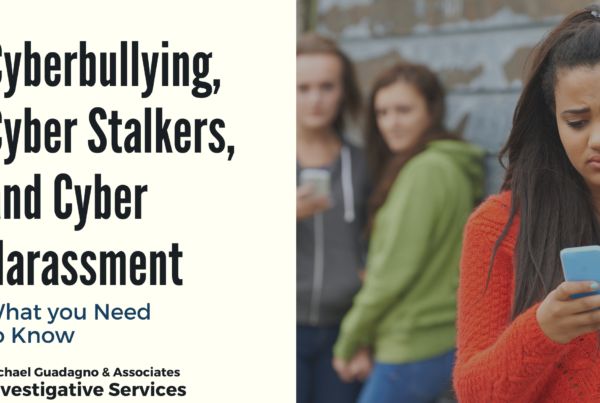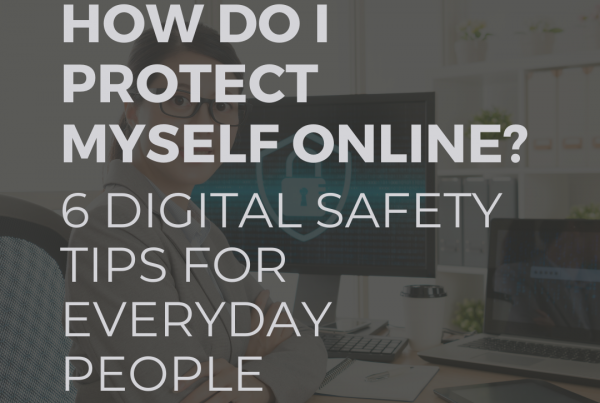
“Catfishing” is a deceptive activity where a person creates a fake digital profile to engage in online relationships. Identities are often created by using other people’s social media accounts to create a new identity online – sometimes using an individual’s entire identity as their own.
The term originated from a 2010 documentary and popular MTV reality series about Nev Schulman, a 28-year-old photographer who fell in love with a beautiful young woman’s Facebook profile and voice on the phone. After discovering the person was actually a middle-aged housewife and mother by the name of Angela Wesselman, Schulman was emotionally traumatized. However, he put that trauma to good use and began helping others by publicly calling out “catfishers” and raising awareness of a common issue people face on social media and when dating online.
Catfishing initially targeted adults, but as our children become more active online, it’s more widespread among young adults and teenagers, often damaging the reputation of the valid owner of the identity.
Catfishing has also taken on a more nefarious role as it’s become a common way for predators to prey on children; picture a dirty old man chatting up young kids for more sick and perverted reasons. Con artists also use catfishing as a way to trick people out of their money. If you’ve ever received a text from a friend who needs you to wire them money for one reason or another, chances are pretty good the person asking was a catfish.
Private Investigators Play a Key Role in Protecting Against and Catching Catfishers.
Today, Private Investigators have proven to be tremendously helpful in preventing catfishing scams and catching perpetrators in the act. Catfishing is a form of fraud, so when it occurs, it needs to be investigated. Unfortunately, in most cases, the police don’t have time to chase after “catfishers”. A private investigator not only has the time, but they also have the tools and resources to do it quite effectively.
Education
The best way to prevent catfishing is to know what to look for when someone sends you a friend request; it’s as simple as that. So here is a checklist I run through to ensure authenticity:
- Run a search on the social media platform that the request came from for the person requesting. If there are two of the same profiles, that’s a red flag.
- Check their photos. Pictures really are worth 1000 words, and an empty photo album tells you a lot. Also, download their profile picture and run a Google Images search. If the search results show that it’s a stock photo or refers back to a completely different person’s profile, that’s a red flag.
- How old is their profile? New profiles are suspicious.
- Where do they live? Requests from another country are suspicious.
- If they ask for money or message on a different app, think twice before continuing the conversation.
- How many shared friends do you have with them? Personally, if they don’t know anyone in my circle, they don’t qualify.
Lay Down Ground Rules and Monitor Your Children’s Online Activity
Once your children begin using a tablet, PC or laptop, you should sit down and discuss some basic ground rules about what they can and can’t do online.
The earlier you do this, the better.
- Let them know you will be involved and monitor their online behavior.
- Set all search engine filters to their Safe Search option.
- Monitor ALL social media and messaging.
- Just because it’s a kid’s game doesn’t mean there are no dangers. Games like Roblox and Minecraft are a lot of fun and offer many benefits, but they are also some drawbacks to consider. Commonsensemedia.com
has some excellent resources to help you better understand each game. - Talk to children about online safety. These conversations can be challenging to start, but talking regularly, like you would about their day at school, will help your child feel relaxed and they’re more likely to come and speak to you when they do have any worries.
- Stress the importance of telling an adult. If your child feels threatened or uncomfortable, they should cut off communication immediately and come talk to you. When they do this, DO NOT OVERREACT. They need to know they can come to you without getting yelled at or in trouble. If they can trust you, they will be more open and forthright about what they’re doing online.
Additional “catfish prevention tips” to keep in mind:
- Talk to your kids about friend requests and let them know they should always come to you before accepting a friend request; not just from people they don’t know, but anyone.
- Set strict privacy control settings on Facebook, Instagram, and other social media.
- Once a month, run a search for your child’s face and name in Google Images; you might find pictures or accounts they may be hiding from you.
- Be friends with your child on Facebook, and check-in with them daily in “real life” offline. Unfortunately, while this may be obvious, during the teenage years, things get a little crazy.
- Make sure you meet all boyfriends/girlfriends. It’s common for kids’ relationships to start online these days. If your child is of “dating age” and you know they’re in constant contact with a certain someone, ask to be introduced at some point. A lot can be said for doing things old-school, especially when it comes to our kids.



